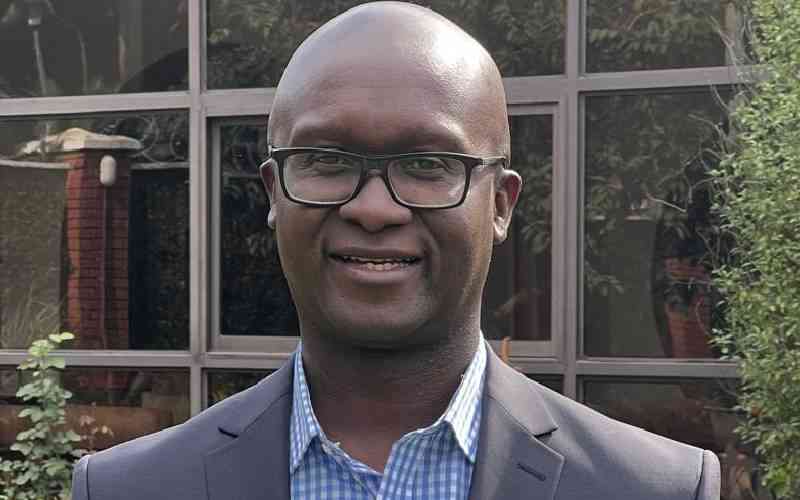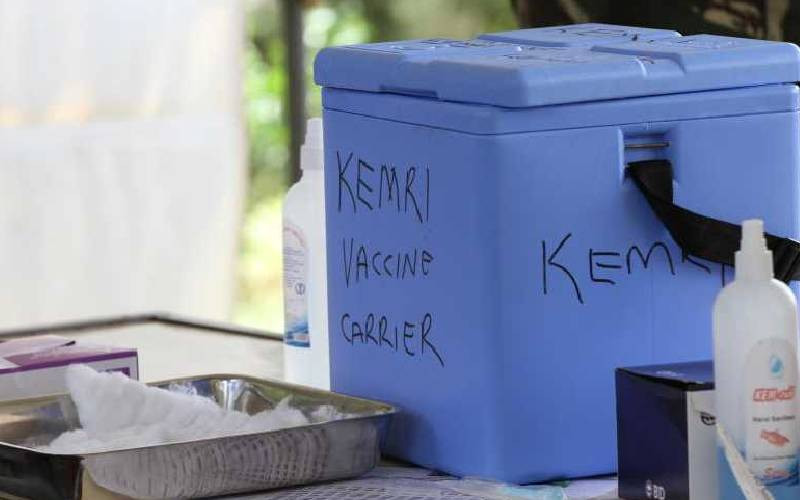By Wainaina Ndung’u
Nyeri Town could soon experience a busy nightlife after years of being referred to as a "dead town" after nightfall.
Governor Nderitu Gachagua’s has signaled an intention to licence 24 hour nightclubs after a decade of stranglehold by indifferent provincial commissioners.
Nightlife has been at a standstill in the usually chilly former Central Provincial headquarters after the tenures of two hardline provincial commissioners whose pet project was fighting boozing.
Even before the Mututho law brought stringent control of the liquor licensing, the sector had died a slow death in Nyeri town owing to a combination of rigid stance promoted by PC Peter Raburu and his successor Japhter Rugut who is now the Commandant of the National Youth Service (NYS).
The shutting down of night entertainment joints also spelt doom to other businesses as the town literally goes to sleep at sunset.
Although regarded as one of the major towns in Mt Kenya region, Nyeri has no "late night chemist" neither does any of the leading supermarket chains have a branch in the sleepy town. Petrol stations closes as early as 9pm.
With many towns embracing a 24-hour economy, Nyeri is still lagging behind but the new County government wants to alter the landscape by providing incentives for people to invest.
While Raburu is remembered for taking his religious crusades to every meeting he chaired in the area and offering bibles in all establishments in the town, Rugut was comfortable issuing directives against liquor outlets to his DCs and DOs and trumpeting his achievements in the fight against alcoholism during national day cerebration.
PC Raburu even installed a giant billboard at the entrance of Nyeri town from Nairobi proclaiming “Nyeri for God” with the 10 Commandments clearly inscribed at the back. The billboard was however brought down by scrap metal vandals shortly after he retired in 2006.
“It hard to know why the two PCs set it upon themselves to clamp down on middle class boozing when the people in excessive irresponsible drinking were those in the third generation sector,” says Jacobosen Kirira who grew up in Nyeri town in the 1980s and 1990s when the town had nightlife.
Voi trader Kirira recalls how he enjoyed nightlife in the town in the 1990s after he finished schooling at the St Mary Secondary School. “One cannot imagine how night life was suddenly eroded in taking the town back to long before the 1980s,” says Kirira.
Dorcas Wanja, a Nyeri office worker who enjoys going out on weekends says because of the limited options in Nyeri, she takes off to Nanyuki or Thika when she want serious clubbing. As a matter of fact, Nyeri has gained a reputation for sleeping like a baby.
Karathinga Muchiri who worked as Disco Jockey under the Waigua Atia Sound System in the 1980s and early 1990s recalls that Nyeri had a vibrant night life and they could get contracts to spin most weekends in at least four night clubs which opened doors at 7.00 pm and close at 7.30am.
“The society then wasn’t rotten,” says Muchiri who is now a born again Presbyterian lay leader, “They all turned out in couples. Got a Sh20-30 gate ticket and purely wanted to while the night away. The police could easily let you off in the streets once you produced our ticket.”
Stay informed. Subscribe to our newsletter
Nyeri county liquor courts received 1663 applications and rejected 465 this year. Another 96 licenses were cancelled for being less than 300 metres from schools.
Gachagua on Monday told a consultative meeting of bar operators and members of the eight liquor licensing courts that though he wanted to control excessive alcoholism in the area, that he would also adopt a liberal policy that will not criminalise the liquor business.
“If the people want a 24 hour club, we will license because nobody wants to come to a ghost town,” said Mr Gachagua. “We shall not be doing anything new because clubs are all over the country, all over the world.”
The promise to favourably consider such a license has created disquiet among a section of the provincial administration although Nyeri County Commissioner appeared very accommodative during this meeting.
According to one Assistant County Commissioner speaking on condition of anonymity for fear of creating friction with the county government, a liberal attitude in the licensing processing will roll back achievements achieved from the “difficult ground work” by the two PCs.
“I would rather the county government had stuck with the past than open what will surely be a can of worms,” says the administrator who speaks highly of the two PCs.
Gachagua, however, argued that a 24-hour drinking establishment will not create any security or social malaise as it will be stringently monitored and security agencies coordinated to ensure it did not become a crime den something that County Commissioner Mwangi concurs with.
Gachagua has proposed to put his office directly in charge of licensing liquor outlets in the county and a raft of measures which he says will revitalise liquor dispensing in the county.
He also proposes to levy a single license fee on all liquor outlets in a county that has gained a reputation for heavy drinking but appears keen to reign on the downstream liquor business which has surprisingly not borne much harm from the Mututho Law.
He said he would introduce a regulation requiring third generation alcohol manufacturers in the neighbouring counties such as Kirinyaga to register with his government to ease traceability in case of problems.
“There is not a country in the world that can prosper when its citizens are drinking too much but if the residents want a 24-hour night club, we will grant a license because nobody wants to come to a ghost town,” said Gachagua.
Other measures that the Nyeri governor is proposing to reign in on the graft tainted liquor licensing process currently controlled by the provincial administration is co-opting members of bar owners associations in liquor courts and county legislation promoting self regulation.
At the meeting, the bar owners had a raft of accusations against the current licensing regime and law enforcement agencies accusing them of treating the industry punitively as if it was illegal.
Nyeri Central Bar Owners Association chairman Teobald Mukundi told the governor to address unemployment if he wanted to win the war against excessive alcoholism amongst the youth.
“The number of licenses required are too many and the fees charged take little regard of locality of the business by providing almost uniform fees,” said Mukundi.
He also claimed that operators were victims of constant blanket directives by members of the provincial administration which were against conditions in the licenses issued to them.
While promising to enact county legislation to provide for a single license, Gachagua however warned the operators that the license fee might still be too high but promised to make it payable quarterly or twice annually.
Gachagua told the operators to cease paying for renewal of licenses until July 1 when the county government will fully take over. A 30-member taskforce including the all deputy commissioners for the eight districts in the county and representatives of the operators was formed to recommend changes in the industry.
 The Standard Group Plc is a
multi-media organization with investments in media platforms spanning newspaper
print operations, television, radio broadcasting, digital and online services. The
Standard Group is recognized as a leading multi-media house in Kenya with a key
influence in matters of national and international interest.
The Standard Group Plc is a
multi-media organization with investments in media platforms spanning newspaper
print operations, television, radio broadcasting, digital and online services. The
Standard Group is recognized as a leading multi-media house in Kenya with a key
influence in matters of national and international interest.
 The Standard Group Plc is a
multi-media organization with investments in media platforms spanning newspaper
print operations, television, radio broadcasting, digital and online services. The
Standard Group is recognized as a leading multi-media house in Kenya with a key
influence in matters of national and international interest.
The Standard Group Plc is a
multi-media organization with investments in media platforms spanning newspaper
print operations, television, radio broadcasting, digital and online services. The
Standard Group is recognized as a leading multi-media house in Kenya with a key
influence in matters of national and international interest.








